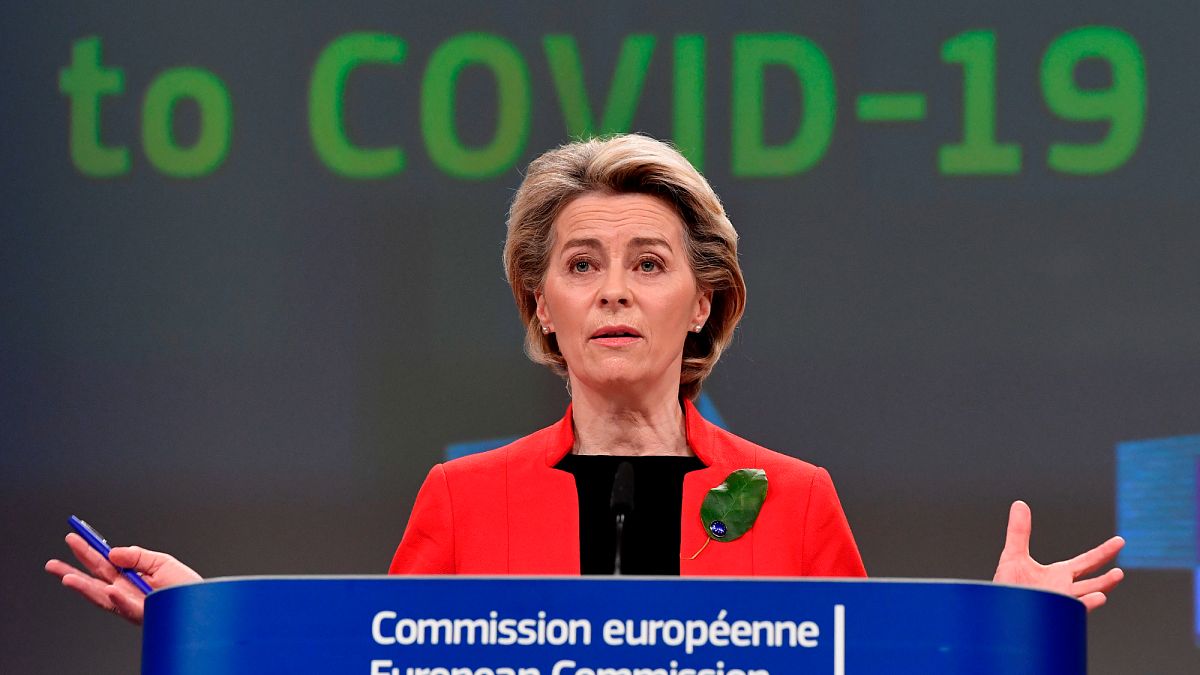NGOs and others affected by transparency issues have hailed Wednesday’s EU Court of Justice’s General Court ruling that the European Commission failed to provide a plausible explanation for not possessing documents related to the COVID-19 vaccine purchase contracts with Pfizer in what has become a pivotal case for institutional transparency.
Following revelations by The New York Times about the existence of text messages between Commission President Ursula von der Leyen and Pfizer CEO Albert Bourla, the publication submitted a request for access to the messages.
At the time, the Commission denied the request, arguing that text messages are, by nature, short-lived and do not meet the criteria for inclusion in the institution’s document management system.
“Today’s decision is a victory for transparency and accountability in the European Union. It sends a powerful message that ephemeral communications are not beyond the reach of public scrutiny,” a spokesperson for The New York Times said in a statement following the ruling.
The publication added that the ruling made clear officials are obliged to treat text messages like any other record and acknowledged the European Commission’s mishandling of the request.
According to the Court, the Commission cannot simply claim it does not possess the requested documents; it must offer credible explanations that allow both the public and the Court to understand why the documents cannot be located.
Not the only ones challenging the Commission
“Today’s ruling clearly demonstrates that transparency and democratic accountability must not be exercised behind closed doors in the European Union,” said MEP Tilly Metz (Luxembourg/The Greens).
She added that when important decisions and deals are made in secrecy, there is a risk that commercial interests could take precedence over the public good.
Metz was also involved in another court case, launched in 2021, against von der Leyen regarding the transparency of the vaccine contracts.
In that case, the Commission released heavily redacted documents, a move that the EU Court of Justice later condemned, finding that the executive’s decision to publish only censored versions of the contracts involved procedural irregularities.
In 2022, the EU’s Ombudsman also criticised the Commission’s handling of The New York Times’ request, describing it as a “wake-up call” for EU accountability, and upheld her finding of maladministration in the matter.
Reacting to today’s ruling, the Ombudsman stated: “The Court – like the Ombudsman – has once again emphasised that the right of access to documents requires the institutions concerned to, as far as possible and in a non-arbitrary and predictable manner, always draw up and retain documentation relating to their activities.”
She added that if institutions fail to register and retain such documentation, the right of access to documents is rendered meaningless. The Ombudsman also called on the Commission to draw the necessary conclusions from today’s judgment and to ensure that the public’s right of access to documents is fully upheld.
“This judgment provides a fresh reminder that the EU is governed by the rule of law with its leaders subject to the constant scrutiny of free media and of an independent Court,” said Alberto Alemanno, founder of The Good Lobby.
He added that the NYT’s win is “everyone’s win as this judgment set to lead greater accountability of EU leaders’ actions”.
“There is still a lot of unclarity, and there should be transparency around what happened,” Shari Hinds, a policy officer at Transparency International EU, told Euronews.
She argued that full transparency and accountability are essential when it comes to public health decisions such as these contracts, which affect millions of people.
“We think that public trust should be restored, there are open questions and it’s time for the Commission to show the commitment to upload public accountability,” she added.
The European Commission has said it will closely examine the General Court decision before deciding on next steps, the Commission has two months in which to lodge an appeal. It also announced plans to adopt a new decision offering a more detailed explanation in response to The New York Times’ original request.
“Transparency has always been of paramount importance for the Commission and President von der Leyen. We will continue to strictly abide by the solid legal framework in place to enforce our obligations,” the Commission said.
Read the full article here


